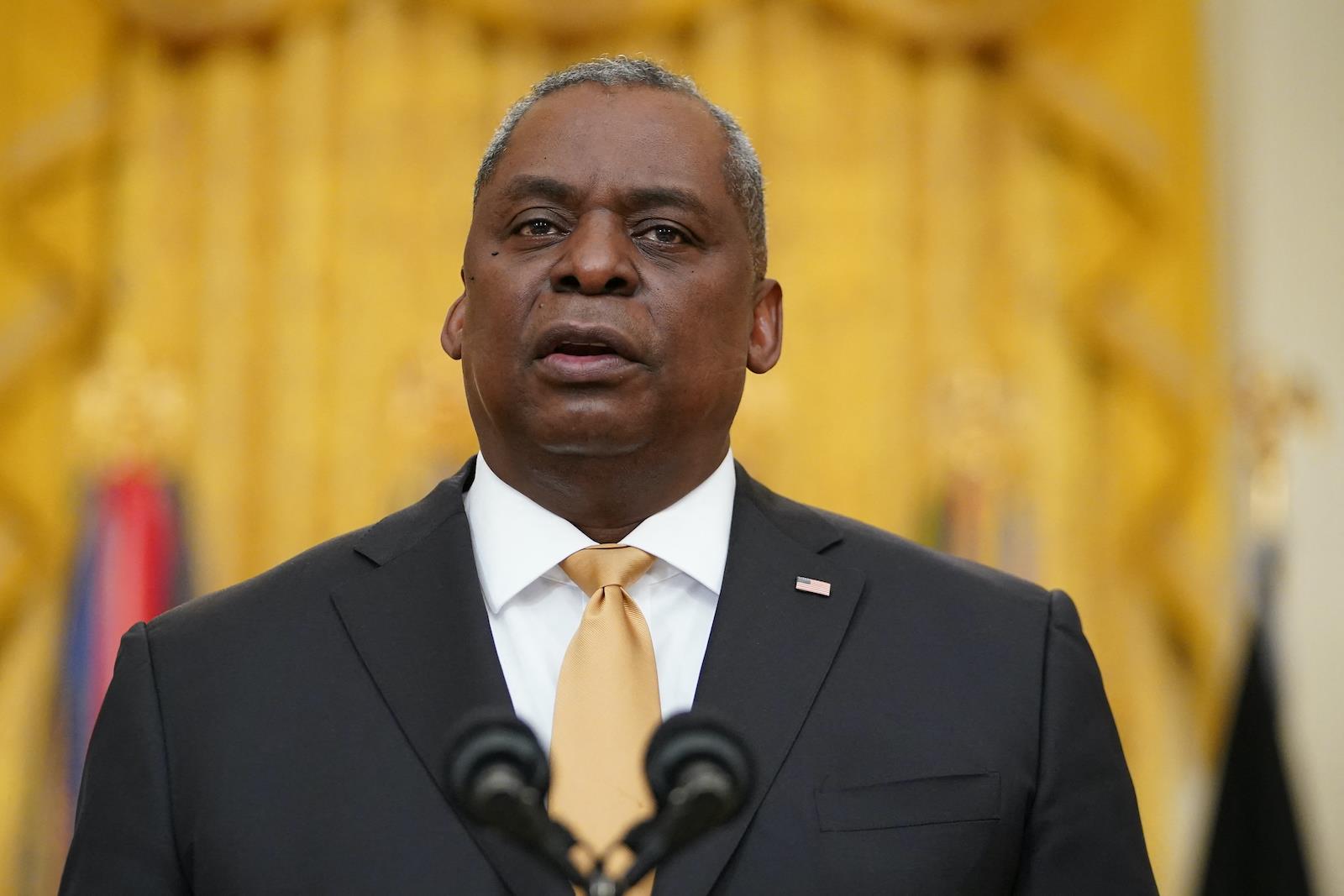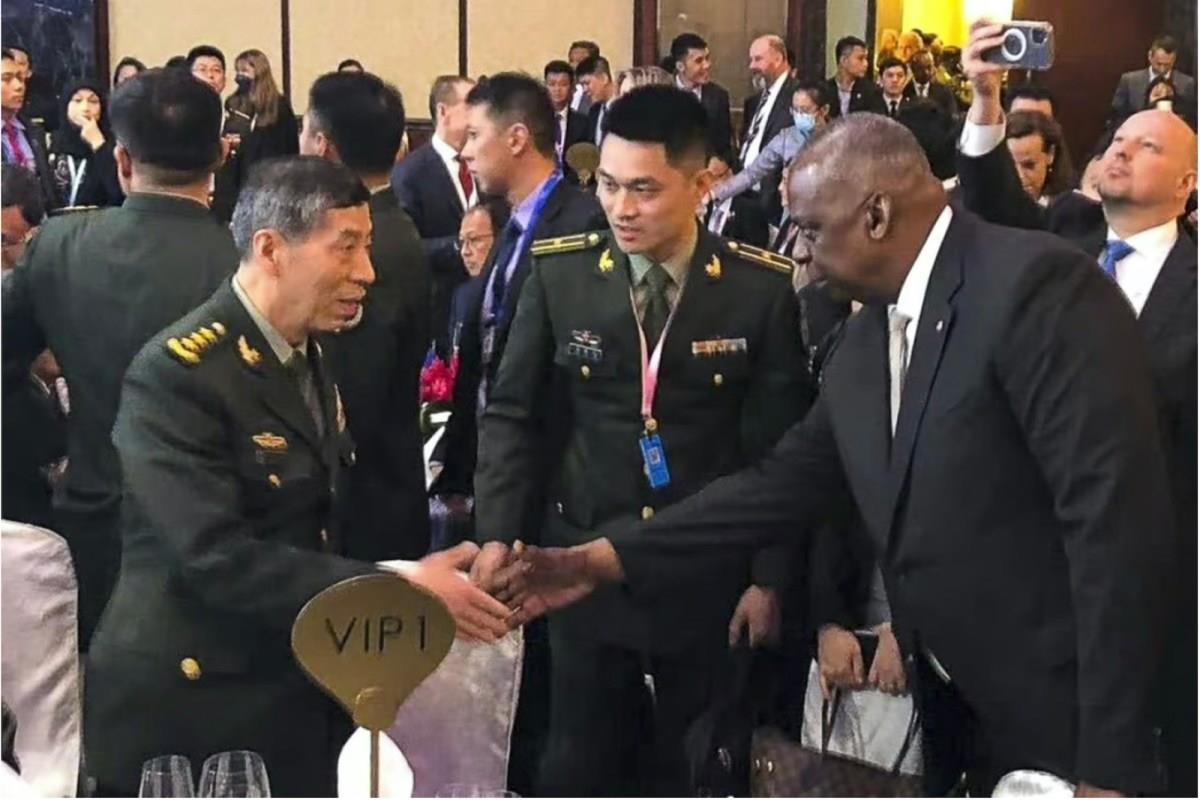(MENAFN- Asia Times) SINGAPORE –United States-China tensions were on full display at the Shangri-La Dialogue, Asia's premier security summit held in Singapore from June 2-4, with Chinese Defense Minister Li Shangfu refusing a formal meeting with his US counterpart even as he acknowledged the dangers of open confrontation between the two superpowers.
“It is undeniable that a severe conflict or confrontation between China and the US will be an unbearable disaster for the world,” said Li, who was appointed China's highest-ranking defense official in March.
He added in his June 4 speech that bilateral ties were at a“record low” and said the US needed to act with sincerity to prevent a further worsening of relations.
“Attempts to push for NATO-like [alliances] in the Asia-Pacific is a way of kidnapping regional countries and exaggerating conflicts and confrontations,” Li added, echoing long-held Chinese criticism of Washington's efforts to establish alliances in the region as part of what it views as a containment strategy to thwart China's geopolitical rise.
Li also struck a moderate tone, though, saying his country sought dialogue over confrontation and that the world was big enough for China and the US to grow and co-exist together.
Reports suggest that Li declined a formal meeting with US Secretary of Defense Lloyd Austin in principle as he has been subject to US sanctions since 2018 for his role in procuring Russian military equipment.
Austin used his plenary speech a day earlier to rebuke China, saying he was“deeply concerned” over Beijing's unwillingness to engage in military crisis management.
While Li and Austin had shook hands and briefly spoke on the sidelines of the conference, the US defense chief remarked that“a cordial handshake over dinner is no substitute for a substantive engagement.”
The Pentagon chief said that open lines of communication between US and Chinese military leaders were essential to avoiding conflict and bolstering regional stability.
“The more that we talk, the more that we can avoid the misunderstandings and miscalculations that could lead to crisis or conflict,” said Austin, adding that“competition must never spill over into conflict.”

US Defense Secretary Lloyd Austin, shown here in a file photo at the June 2022 Shangri-la Dialogue. Photo: AFP / Mandel Ngan
James Crabtree, executive director of the Asia office of the London-based International Institute for Strategic Studies (IISS), which organizes the Shangri-La Dialogue, wrote in a recent commentary that testier relations between the US and China have revealed“fundamentally different visions of the role communication should play in great power relations.”
“Seen from Washington, communication is needed most of all during a crisis... [But] Beijing's view is almost exactly the opposite,” Crabtree
wrote
in the Straits Times.“China thinks of communication as something that should happen when relations are good. If matters go south, cutting communication channels is the easy way to signal displeasure.”
While Austin asserted in his speech that Washington does not seek a new Cold War, he warned against“bullying and coercion” and promoted a shared defense strategy to enable countries across Southeast Asia to“deter aggression.” The Pentagon chief also held informal meetings with 10 regional defense leaders on the sidelines of the annual summit.
Amidst the speeches and debate, the Chinese military said it tracked American and Canadian warships sailing through the sensitive Taiwan Strait on Saturday (June 3) in a move it said was“deliberately provoking risk.” The US Navy, in turn, accused a Chinese destroyer of making“unsafe” maneuvers near the same US warship as it sailed through the flashpoint strait.
Relations between Washington and Beijing are badly strained over a range of issues, with the two superpowers sparring over China's ambitions of putting Taiwan under its control, its sweeping territorial claims in the South China Sea, and US restrictions on semiconductor chip exports to China, which Beijing sees as a means of stifling the country's technological development.
On the eve of the security summit in Singapore, Chinese President Xi Jinping told officials heading the National Security Commission to be ready to deal with“worst-case and most extreme scenarios.”
State media quoted Xi telling his national security team that the“complexity and difficulty of the national security issues we now face have increased significantly.”
Despite worsening bilateral friction, Oh Ei Sun, a senior fellow at the Singapore Institute of International Affairs (SIIA), told Asia Times that both Li's and Austin's addresses to the Shangri-La Dialogue shared an“underlying consensus” that confrontation would have negative global implications,“and therefore, something must be done to avert it as much as possible.”
Oh, who attended the summit as an observer, said Beijing's refusal to hold military-to-military talks was intended to goad Washington into lifting sanctions against Li and softening support for Taiwan.
“Of course, it is very difficult for the Joe Biden administration to do that because the bipartisan congressional posture is very much against China,” the analyst added.
Chong Ja Ian, an associate professor of political science at the National University of Singapore, said the content of Li's address was“largely consistent with his predecessors. [His] more amiable tone seemed to indicate a desire to convince regional actors of its benignity. There was much more emphasis on Taiwan, probably indicating an attempt to de-internationalize its dispute with Taiwan.”
Oh viewed Li's approach, tone, and demeanor as differing from predecessors that had previously addressed the defense summit, likening the Chinese defense chief as“more of a scholar-general” who eschewed hawkish rhetoric.“Austin's speech also did not go out of its way to attack China, so I think both sides would like to turn down the tension a little bit,” he said.
Diplomacy between the US and China is ongoing despite the lack of dialogue in Singapore, with US Assistant Secretary of State for East Asian and Pacific Affairs Daniel Kritenbrink arriving in Beijing on Sunday (June 4) to discuss key bilateral issues. Central Intelligence Agency (CIA) director William Burns reportedly visited China last month to discuss the need for
maintaining open lines of communication.
Dialogue between the two countries has largely stalled since US Secretary of State Antony Blinken canceled a visit to China in February after the shooting down of a suspected Chinese spy balloon tracked within US airspace. While there has
been diplomatic communication through various channels,
China's new defense minister has rebuffed all requested calls since being appointed.
Chong told Asia Times that Austin's statements at the summit“conveyed a sense that while Washington sought engagement and ideally cooperation with Beijing, it is willing to deter Beijing from engaging in what it sees as destabilizing behavior. Using deterrence as a means to promote stability can be useful in circumstances of high uncertainty and limited direct communication.”

The Chinese missile frigate Yuncheng launches an anti-ship missile during a military exercise in the waters near south China's Hainan Island and Paracel Islands in a file photo. Image: Xinhua
“The question is the degree to which Southeast Asian governments and citizens understand this approach,” Chong said, noting that regional governments are“worried about a crisis,” while Beijing may be“trying to put pressure on the US to communicate on its terms – that is having to withdraw some of its activities in the East China Sea, South China Sea, and around Taiwan.”
Australian Prime Minister Anthony Albanese opened this year's Shangri-La Dialogue with a keynote address in which he urged Washington and Beijing to maintain communications to prevent incidents from spiraling out of control, the consequences of which“would not be confined to the big powers” but“would be devastating to the world.”
Albanese said he supported the Biden administration's renewed efforts“to establish reliable and open channels of communication” with China, adding that the“alternative, the silence of the diplomatic deep freeze only breeds suspicion, only makes it easier for nations to attribute motive to misunderstanding, to assume the worst of one another.”
Follow Nile Bowie on Twitter at @NileBowie
Like this:Like Loading...






















Comments
No comment